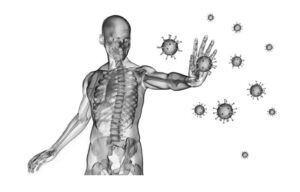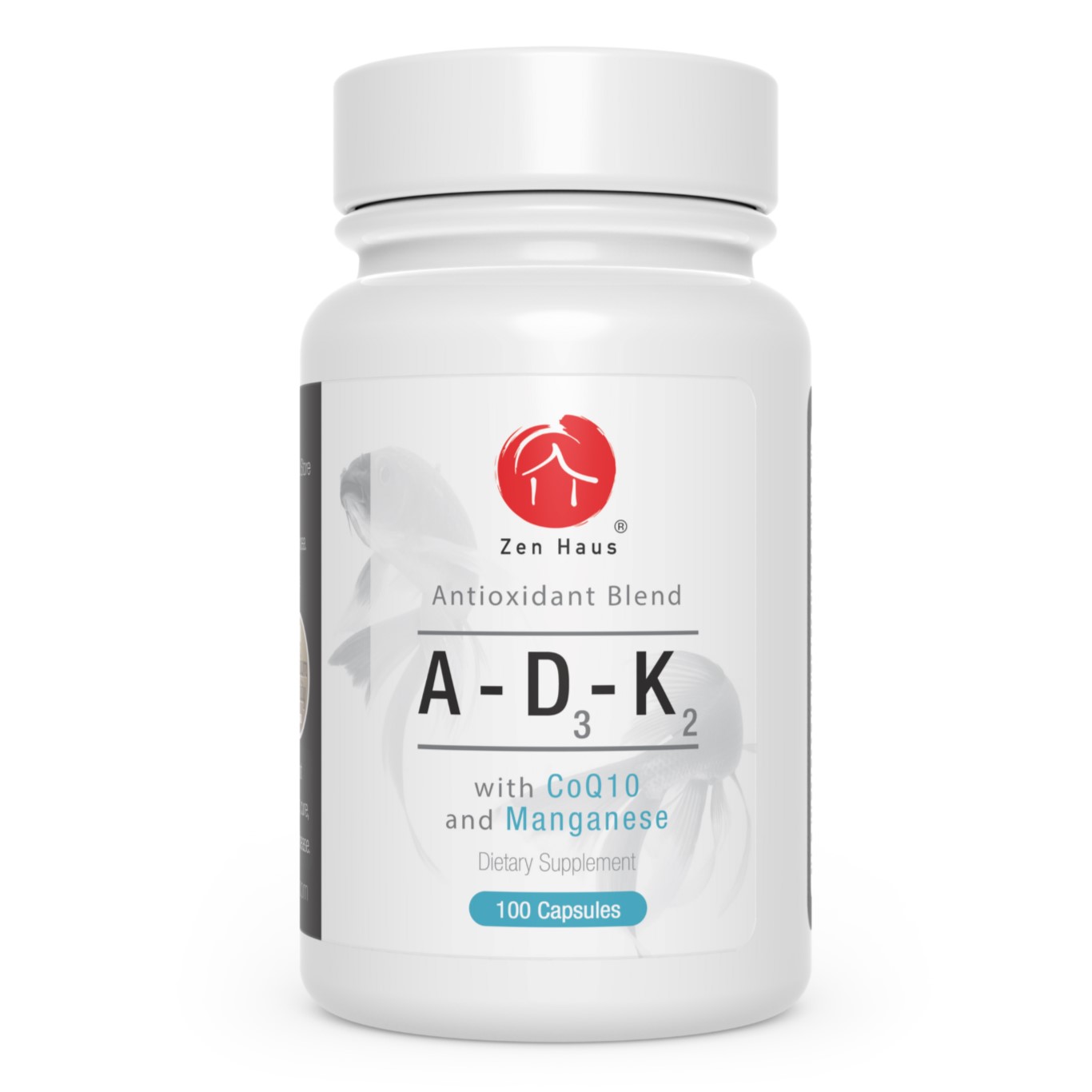Vitamin D
Part II
In Part I we discussed what Vitamin D is, why we are deficient and why supplementing is important. In this section we take a brief look at the vast and ongoing research on the many benefits of using a Vitamin D supplement. This is by no means a comprehensive review. We aim to give a sense of how important the role of Vitamin D is throughout the body and provide a platform for a deeper dive. Only studies that suggest that Vitamin D may have a positive impact on the given area will be mentioned. There may be conflicting results from other studies. The purpose is to demonstrate the potential range of Vitamin D benefits can have on the body. It will be shown that using Vitamin D for the prevention of illness and therapeutic treatment is very promising from a holistic viewpoint.
Benefits
Where to begin. There are many areas of human health that seems to be directly impacted by Vitamin D serum levels which researchers continue to investigate. These areas include:
- Immune System
- Mental Health
- Cellular Health
- Cardiovascular Health
- Bones
- Cognitive Function
- Longevity
There are also new studies that consider the role of Vitamin D in numerous other areas. These include:
- Inflammation
- Nerves
- Muscle Strength
- Testosterone
- Heart Issues
Studies have been carried out where Vitamin D benefits has been associated with the ability to fight different cancers. These cancers include:
- Breast Cancer
- Prostate Cancer
- Colon Cancer
- Ovarian Cancer
- Gastric Cancer
- Pancreatic Cancer
- Thyroid Cancer
Vitamin D and Central Functions
Much research has been done on the following areas and more research is underway. The immune system helps prevent diseases from taking root in the body and should be the primary concern of any health conscious person. It is well established that Vitamin D supports the immune system and supplementation should always be considered. Even more fundamental is proper cell function and Vitamin D plays a key role there as well. We also see there is a strong connection between Vitamin D levels and cardiovascular disease which is a major cause of death. Mental health and cognition, bone health, and longevity also benefit from adequate Vitamin D levels.
Immune System
 Vitamin D is deemed to have natural influence on the immune system. Studies indicate that populations with limited sunlight exposure or Vitamin D deficiency have been found to have weakened immune systems compared to populations with greater exposure to direct sunlight. They also have more heart disease and poor lung function. Vitamin D does far more than aid calcium absorption. It supports the immune system and this helps explain its effect on autoimmune diseases.
Vitamin D is deemed to have natural influence on the immune system. Studies indicate that populations with limited sunlight exposure or Vitamin D deficiency have been found to have weakened immune systems compared to populations with greater exposure to direct sunlight. They also have more heart disease and poor lung function. Vitamin D does far more than aid calcium absorption. It supports the immune system and this helps explain its effect on autoimmune diseases.
Vitamin D receptors are found in most immune cells. It is believed to help maintain healthy immune cell development, differentiation and migration. Those with higher levels of Vitamin D are less likely to suffer autoimmune diseases, including type 1 diabetes and multiple sclerosis.14
T cells are a type of white blood cell and is a component of the immune system. T cells rely on Vitamin D to become active. If Vitamin D is serum levels are too low, T cells can remain dormant and will not respond to the threat from infections and harmful micro-organisms.
Carsten Geisler, of Copenhagen University’s Department of International Health, Immunology and Microbiology, proposes that when a T cell is exposed to a foreign harmful microorganisms, the T cell searches for Vitamin D. The T cell must have Vitamin D for activation of the cell to continue with the appropriate response.15 If the T cells cannot find enough Vitamin D in the blood, they will not begin to mobilize.
Regulatory T cells are also important because they let the immune system know which cells are friendly and avoid treating them as foreign threats. In this way, the T cells soften the immune response and help prevent the immune system from attacking normal healthy cells.
Higher levels of Vitamin D are associated with proper cytokine production which is important for signalling in the immune system. Higher serum levels are also linked to the body’s local antioxidant defenses being enhanced.
In a study of Japanese schoolchildren, Vitamin D supplements taken during the winter months reduced seasonal flu and asthma attacks. According to Dr. Mitsuyoshi Urashima of Jikei University School of Medicine, Tokyo, the idea for the study stemmed from an earlier one looking at whether the supplement could help prevent osteoporosis. Dr. Urashima noticed that subjects taking Vitamin D were much less likely to report cold and flu symptoms.16
Cell Function
Most cells in the body need Vitamin D to function properly. Without adequate Vitamin D, normal functioning cells can become malignant cells.17 Various tissues throughout the body have receptors for Vitamin D. The primary function of Vitamin D is cell management. Research indicates that optimal Vitamin D serum levels may be important in maintaining breast, ovary, uterine, prostate, esophagus, stomach, colon, bladder, kidney, pancreas and lung cell health.
A Creighton University study involving over 1,100 women revealed that 1,000 IU of Vitamin D combined with calcium provided statistically significant support for cellular health compared to calcium supplementation alone.
Preliminary evidence also suggests that Vitamin D may also play a role in maintaining healthy glucose metabolism, due to the presence of Vitamin D receptors on the hormone-producing cells of the pancreas.
Biochemical studies suggest that Vitamin D help to keep cells from becoming harmful. If cells do go bad, Vitamin D encourages them to self-destruct. Scientists suspect Vitamin D may still have other functions relating to cell health.
Cardiovascular Health

Cardiovascular disease is the main cause of death in the Western world. The formation of lipid lumps in the blood vessel wall is the most common cause of cardiovascular disease.
Blood vessels play a huge role in cardiovascular disease as well as virtually every medical condition. For example, angiogenesis is the process through which new blood vessels are formed from existing blood vessels. Cancer cannot progress without tumor induced angiogenesis to supply the harmful cells with its basic needs.
Optimal serum Vitamin D concentrations are associated with healthy blood vessel relaxation and blood flow. Vitamin D also helps maintain healthy angiogenesis balance.
It has been suggested that Vitamin D deficiency contributes to the development of cardiovascular disease through the association with risk factors like diabetes and hypertension.18 Direct effects of Vitamin D on the cardiovascular system may also be involved. Vitamin D receptors are expressed in a variety of tissues, including cardiac muscle cells, vascular smooth muscle cells, and cells that line the interior surface of blood vessels and lymphatic vessels. Vitamin D has been shown to affect inflammation and cell proliferation and differentiation.19
Vitamin D supports cardiovascular health by helping to regulate angiogenesis and promoting blood vessel relaxation.
Mental Health and Depression

Older men and women with lower levels of Vitamin D in their blood are more prone to become depressed over time. It is not proven that low Vitamin D levels cause depression because people with low serum levels may have other characteristics that predispose them to the poor mood and spending time outdoors. However, many studies have suggested there is a link between Vitamin D deficiency and depression.
Serotonin and dopamine are neurotransmitters that are responsible for making us feel good. They are naturally occurring chemicals in the brain that help the mind to stay calm, the body to move fluidly, and maintain focus during tasks. Serotonin and dopamine also help you to resist depression and other mood disorders.
Tryptophan Hydroxylase 2 (TPH2) in humans is primarily expressed in neurons that pertain to serotonin in the brain. It helps regulate the enzyme that converts tryptophan into serotonin in the brain. TPH2, has a genetic sequence that indicates that it is activated by Vitamin D. This suggests that Vitamin D may be important to producing serotonin in the brain from tryptophan. Serotonin regulates many functions including various cognitive functions, social behavior, decision-making, impulse control and aggression, memory, anxiety, and more.
A study was made to observe how Vitamin D related to depressive symptoms in women during the winter. The research indicates that Vitamin D supplementation may decrease depressive symptoms during the winter months. In this study, nine women with serum Vitamin D levels < 40 ng/ml were administered a test for depression (the Beck Depression Inventory or BDI-II). After Vitamin D3 supplementation, six women completed the test and had their serum Vitamin D levels reassessed. Vitamin D supplementation was associated not only with an increase in the serum Vitamin D levels by an average of 27 ng/ml but also with a decline in the BDI-II scores of an average of 10 points. The study suggests that supplementing with Vitamin D3 reduces symptoms of depression.20
Vitamin D is also involved in gene expression for the production of dopamine. Dopamine neurons are in the mid-brain and their target neurons are in the motor and rewards systems. The motor system allows us to move and the rewards system make it desirable for us to move. These neurons were found to express the Vitamin D3 receptor protein. The study suggests that reduced dietary Vitamin D3 may be contributing to diet-induced obesity as well as drug intake while eating a high fat diet.21
Vitamin D seems to be good for neurons in general. Active Vitamin D enhances glutathione metabolism in neurons whereby it promotes antioxidant activities that protect neurons from oxidative degeneration.
Vitamin D has a positive effect on mental health by helping to produce serotonin and dopamine in the brain and protecting neurons from oxidative degeneration.
Cognitive Function

Vitamin D receptors have been found in areas of the brain involved in both memory and cognition. Studies have shown Vitamin D to be an essential neurosteroid hormone that plays a wide variety of essential protective and regulatory roles in the brain. A cross-sectional trial involving more than 80 elderly individuals indicate that higher serum levels are associated with positive mood and mental performance.22
Observational studies have shown that people with Alzheimer dementia have lower Vitamin D levels than those with matched controls and not having dementia.23 This makes sense given what we know of Vitamin D’s antioxidant effects in the brain and the presence of Vitamin D receptors in the hippo campus which is involved with short- and long-term memory functions. A cross-sectional study of 225 outpatients diagnosed with Alzheimer disease found a correlation with Vitamin D serum levels and their score on a mental status test.24
Researchers have also identified 167 studies published between 1995 and 2017 which pertained to Vitamin D and mental disturbances. Their analysis showed an association between low Vitamin D serum levels and various mental disorders.25
Bones
Vitamin D is important for the development and maintenance of bones. Vitamin D sufficiency is pivotal for normal skeletal development in the womb, throughout childhood and also for adults. Vitamin D promotes bone health by maintaining the parathyroid hormone levels at healthy levels which stimulates bone forming activity and encourages bone mineralization.
Vitamin D also supports bone health by promoting a healthy balance of calcium in various parts of the body. It enhances intestinal calcium and phosphorus absorption, and reduces urinary calcium loss.
A meta-analysis of twelve double-blind, randomized controlled trials involving 20,000 people indicates that Vitamin D3 supplements support hip and non-vertebral bone health. Another 3-year randomized controlled study showed Vitamin D3 and calcium supplementation enhanced bone strength while lessening the risk of falls in women aged 65 or older.26
Longevity
There are a number of ways which Vitamin D regulates the aging process, including telomeres. Telomeres are protective caps at the end of chromosomes. They help maintain the integrity of DNA and also protect DNA from damage and deterioration. The length of our telomeres indicate our biological age. Longer telomeres indicate a person is biologically younger.
Some studies have shown that Vitamin D can slow telomere shortening which naturally occurs with age. In one study involving 2,100 female twins, those with the lowest Vitamin D levels had shorter telomeres that corresponded to five years of aging. Women that had serum levels between 40-60 ng/ml also had the longest telomeres compared to age-matched controls with lower Vitamin D levels.27
Vitamin D has other benefits for prolonging life. It reduces the risk for of chronic diseases, including type 2 diabetes, heart disease, osteoporosis, and cancers such as breast cancer, colon cancer, and ovarian cancer. We will briefly discuss these cancers in Part III.
Many studies have shown that people with high Vitamin D serum levels have lower rates of diseases and a lower death rate. However, we do not have sound proof that one can lower their risk of illness by taking a supplement to raise their Vitamin D level. Sun exposure and its brightness, being active outdoors, and other factors influence disease and death risk. If extending life is your priority then Vitamin D supplementation is a reasonable place to start exploring.
Already, we have touch upon many associated benefits of supplementing with Vitamin D. The immune system, cell function, cognitive function, mental health, cardiovascular health, bones, and longevity continue to be areas of interest and is heavily researched. These areas cover much of the our potential health concerns. Keep in mind that this is just a flyby of some of the research done. The next section will continue to explore the potential benefits of Vitamin D though some of these areas are less extensively researched and have come into focus more recently.
In Part III we will continue to look at Vitamin D benefits while focusing on more specific areas. We will also discuss the links between cancer and Vitamin D deficiency.
.
.


